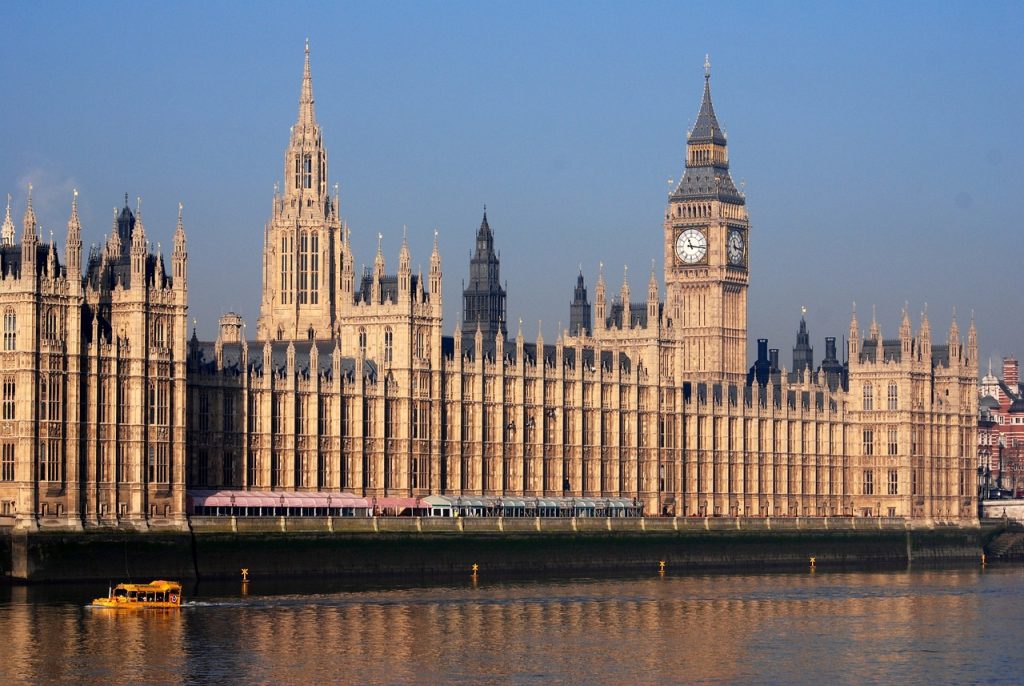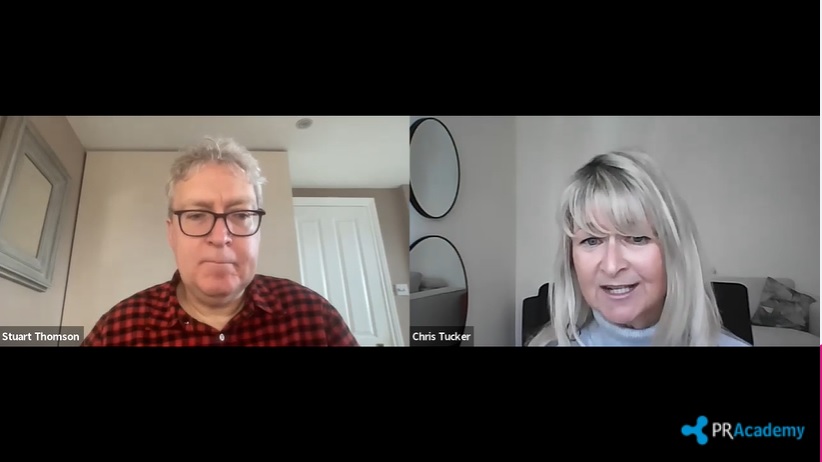How to keep politicians out of your crisis
And what to do if you can’t

About the author
Chris is a lecturer, media trainer, crisis communication consultant and coach. Her in-house roles have included the global position of Director of PR for Barclays. Chris leads the CIPR PR Diploma and Crisis Comms Diplomas. BA Hons, CAM, MCIPR

This was the theme of our first PR Academy Crisis Communication Hub Webinar of 2023, and it proved to be a very lively one. Some comments and questions seemed to come from attendees who had found their organisations on the receiving end of unwelcome political attention. “What can I do if they won’t listen?” was one plaintive cry.
Fortunately, no one attending had faced as torrid a time as P&O’s Chief Executive, Peter Hebblethwaite when he was hauled in front of the House of Commons Business Select Committee after making hundreds of the ferry company’s staff redundant virtually overnight: “Are you in this mess because you don’t know what you are doing, or are you just a shameless criminal?” was the opening salvo from Darren Jones, the Chair of the Committee.
So how to make sure your CEO does not end up in a similar position to the hapless Mr Hebblethwaite.
Good crisis management is good stakeholder management
It’s an old crisis management saying, and it summed up much of what our guest the published writer on public affairs and Course Leader for the PRCA’s Public Affairs Management Diploma, Dr Stuart Thomson, had to say.
Politicians may seem super-scary but they are just another stakeholder group just like all the others in your stakeholder management matrix.
The key as Dr Thomson pointed out is to build your relationships with politicians over time and certainly have them in place well before any crisis hits. To begin to identify who you need to talk to a mind map with your organisation at the centre may help. Then think which politicians may be interested in you because of where you are located, for example, your town or city’s MP, local and regional government. Then layer on to that which sector or industry do you operate in.
There will be Ministers and civil servants who need to know about that sector and there will be others who are simply interested and speak on the subject so work out who they are too by seeing what public speeches and interventions they make and what organisations they have joined.
Similar to how you deal with senior members of the media seek meetings, produce factsheets and briefing papers. Write letters and emails and try to be helpful to a politicians work first, promoting your organisation second.
What makes politicians tick?
To answer this, you need to develop your political antenna and the mainstream media reporting on national political institutions such as Parliament will help. It is akin to dealing with the media. The public agenda for politicians as with the press may be different to your organisational agenda but understanding it and interacting with it is crucial and there are pluses and minuses.
An announcement that may seem relatively routine to you can, if it is happening during a local or national election, acquire a level of political interest you weren’t prepared for. Politicians and civil servants talk about something called “purdah” which for them is not making big announcements while an election campaign is underway. In practice they may cheat a little if it works in their favour but they will definitely be on the look out for what is happening in their locality during such times and if your announcement is indicative of a national trend, for example, major job losses for a company struggling with high energy costs or a boost for a company resulting from a trade deal the Government has just signed could catapult you into political orbit. Best brief the politicians in advance as catching them out can prove to be very risky indeed.
There is often an idea that politicians don’t necessarily understand what we may call “the real world” but that can be an unhelpful stereotype. What they certainly are is time-poor so make any communication to them brief and to the point. In terms of expertise and knowledge, you may be surprised by the level of understanding of even the most obscure issue. You just may have to work a little harder to find the politician with the expertise you need. As Dr Thomson said political “influencers” of this kind may not be the obvious ones such as the relevant Minister and they may be in the House of Lords rather than the Commons in the UK but look hard enough and you may well find an expert well worth cultivating for the political insights they can bring to your organisation and the doors they can open for you.
Why should you care what politicians think and what can they do to your organisation?
Don’t ever forget that in the final analysis, as Dr Thomson pointed out, politicians are legislators. They pass laws that can make or break an organisation. It’s therefore crucial for you and for the public good that when they make such decisions they do so with the full knowledge of what the consequences – intended and unintended – may turn out to be.
This applies whether you are in the public sector, the private sector or indeed the third sector. As well as laws, Government can change the rules that regulate your organisation and, of course, remove funding.
The crisis that hit Oxfam in the wake of the scandal around people it employed in Haiti cost it the lion’s share of its funding which came from the UK Government.
Politicians can also bring about huge reputational hits. Hauling your Chief Executive before a Select Committee, as happened to P&O Ferries, damages reputation and brand. After the TSB failed to deal adequately with an IT software meltdown that locked some customers out of their bank accounts the Chair of the House of Commons Treasure Select Committee, Nicky Morgan, wrote the bank’s Chairman saying: “The TSB board should give serious consideration as to whether Dr Pester’s position as Chief Executive of the TSB is sustainable.” Dr Pester left very soon after.
But it’s not all bad news. Insurance company, AXA, brought pressure to bear on Government to cut the fees personal injury lawyers can charge under “no win, no fee” arrangements as spiralling legal costs were upping the cost of car insurance for the company’s customers. Whilst venture capital boss, David Blitzer, used his summons to the Treasury Select Committee in the wake of a scandal in his industry to explain how his sector really worked and ended up serving on a Government Commission. You can read more about how to handle the negative and positive sides of working with politicians in Dr Thomson’s excellent book, “Reputation in Business: Lessons for Leaders.”
How to get a job in public affairs
The Webinar finished on the topic of how to get a job in public affairs. Worth noting this is one of the fastest growing sectors of the PR forest and this type of experience is becoming very highly prized. Dr Thomson suggested getting involved in politics of some sort yourself first was a good place to start. Being interested in political affairs was crucial. I would also suggest getting hold of Dr Thomson’s book and you could always think of joining him on the PRCA Public Affairs Management Diploma course.
You can watch the Managing politicians in a crisis webinar at PR Academy’s Crisis Comms Hub.


